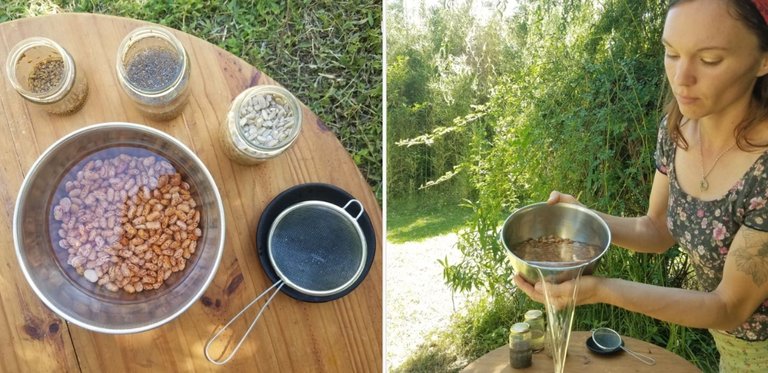
With the rise in plant based diets an increase in the consumption of seeds has risen as well. Almond milk, cashew cheese, and tahini are some examples of seed-based concoctions. These foods when prepared correctly can be delicious but, if prepared without the necessary care could be very irritating to the stomach and cause damage to the body long term.
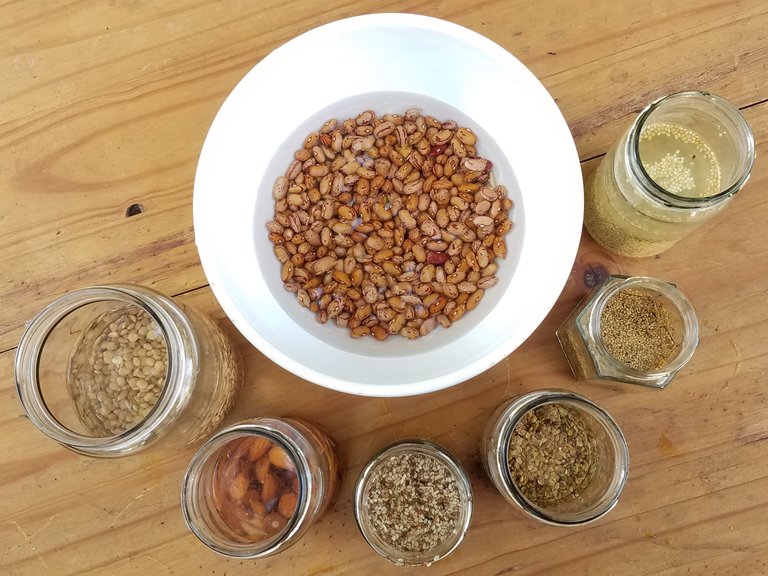
Humans have been collecting seeds and grains like wild rice, quinoa, and wheat since, well, since forever. Our ancestors knew that washing, soaking, and even sprouting seeds was an important step in making seeds edible and nutritious.
These days I see so many recipes including seeds without this crucial step. Last night I saw an add for a machine that makes nut milk and, once again, they instructed the user to just add a handful of dry nuts, water & blend.
I have been contemplating sharing more about soaking and sprouting seeds for a while now and this ad served as a catalyst. I was pretty shocked to see how ill informed it was and decided to be a counter balance to the myth that a plant-based diet is by default healthier than one that includes animal products. I suppose this is up for the debate and depends upon the processing of the foods and one's constitution. I am neither vegan nor vegetarian but, what I can say for certain about diet is that eating seeds raw or cooked without first washing off their anti-nutrients is well, not so nutritious.
What are Anti-Nutrients?
Grains, beans, nuts, and pulses are all seeds and seeds don't really want to be eaten. The life goal of seeds is to sown into the earth and grow into a plant that goes on to make hundreds of seeds of it's own. Seeds, unlike animals, don't have teeth, spikes, or the ability to run away from predators, so they had to develop a defense mechanism which we call anti-nutrients. This is like an invisible membrane around the seed that has a bitter or soapy flavor or otherwise releases chemicals that blocks the absorption of minerals, vitamins, and other nutrients after eating.
This can manifest in a variety of ways. The seeds may pass through the digestive tract releasing anti-nutrients without being digested at all, or they may cause a lot of discomfort - this is a big reason why so many people have a lot of gas after eating beans and other legumes -- the beans haven't been soaked properly before cooking.
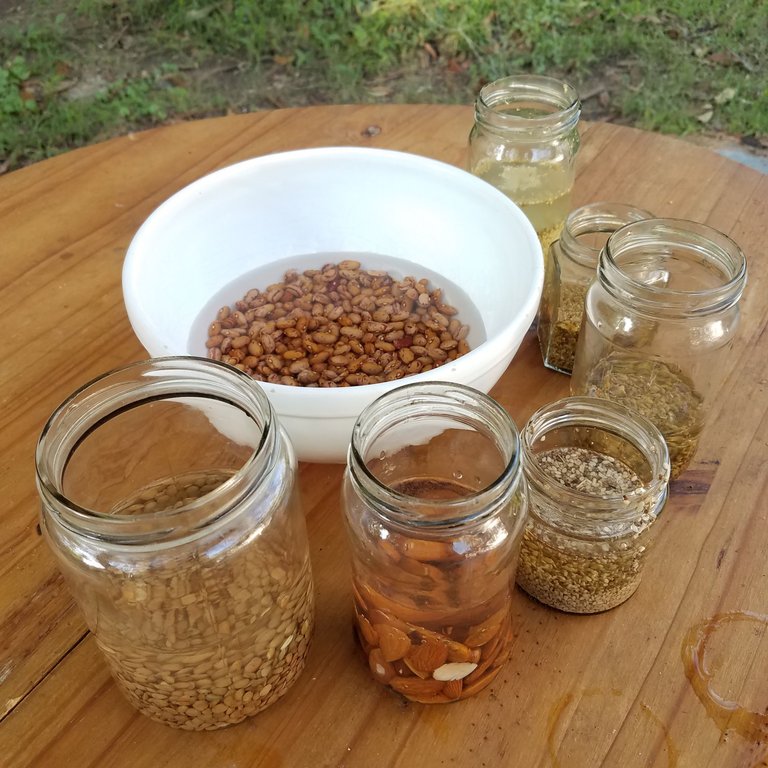
Here in our household we eat a varied diet that changes with the seasons as much as possible. Even so there are plenty of goods that I can't get fresh and so we often consume dried beans from the garden as well as almonds for milk, sesame for tahini, and a few other seeds that I grow into sprouts.
The process of soaking really is simple. In a bowl or jar I add the amount of beans/seeds needed, give them a rinse with water from the tap, pour out that water, then fill the bowl until the beans are totally covered with filtered water. This water will soak all night until the next morning when I will dump all that water out in the garden or on a potted plant. I bolded that last phrase because the water that the beans/seeds has been soaking in is full of anti nutrients that are detrimental to human health but are useful for plants.
At this point the beans/seeds can be consumed. Beans and lentils can be boiled and the alfalfa sprouts can be steamed or eaten raw. I usually take this process a step further and tend to sprout all of the seeds I use.
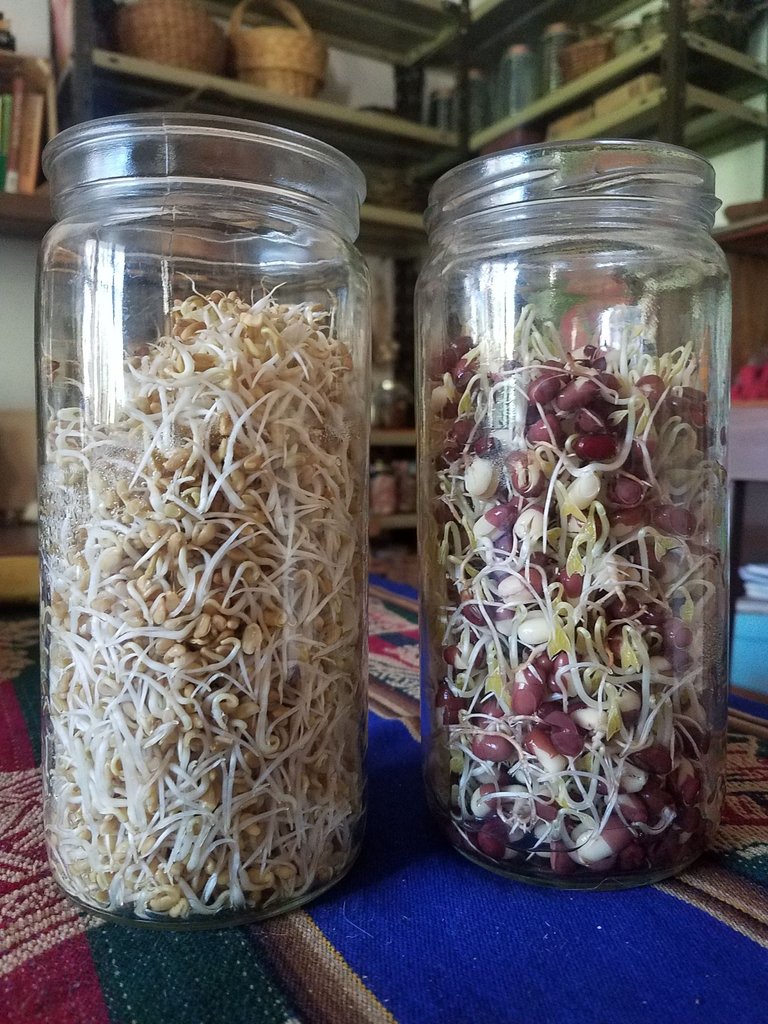
Once the seeds have soaked a full night, then drained in the morning, they don't need to be soaked again but they do need to be washed once a day from then on.
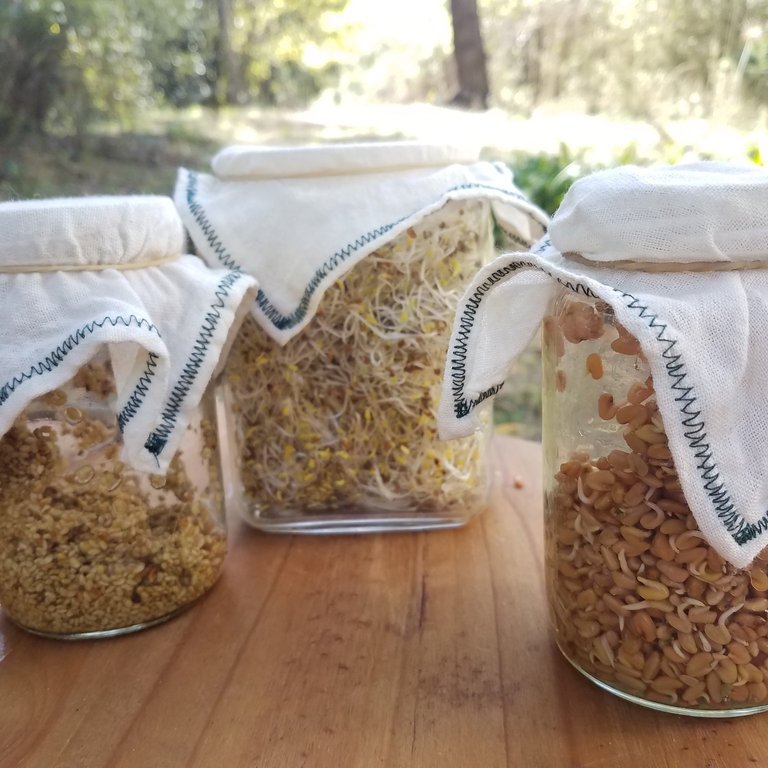
To wash I simply fill the jar with water, let it sit for about 5 minutes, and then dump out the water using a small metal filter that fits nicely over the lip of the jar and keeps the seeds in:
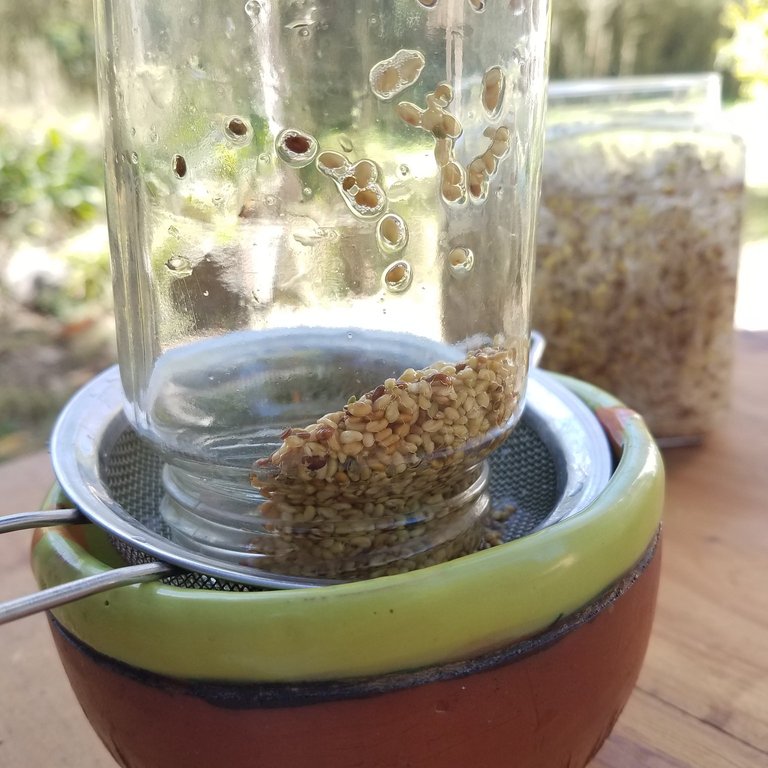
This applies to pretty much everything: alfalfa seeds, lentils, beans, sunflower seeds, but, for some reason, chia no. Chia seeds should be soaked in water for at least a few hours before use or else they will stick to your insides. Most often I soak them in the fridge in filtered water where they will last about five days. Everything else I store in a dark shelf in my kitchen. Sprouts don't need light to grow so this is a great way to grow your own food without access to land or during winter.
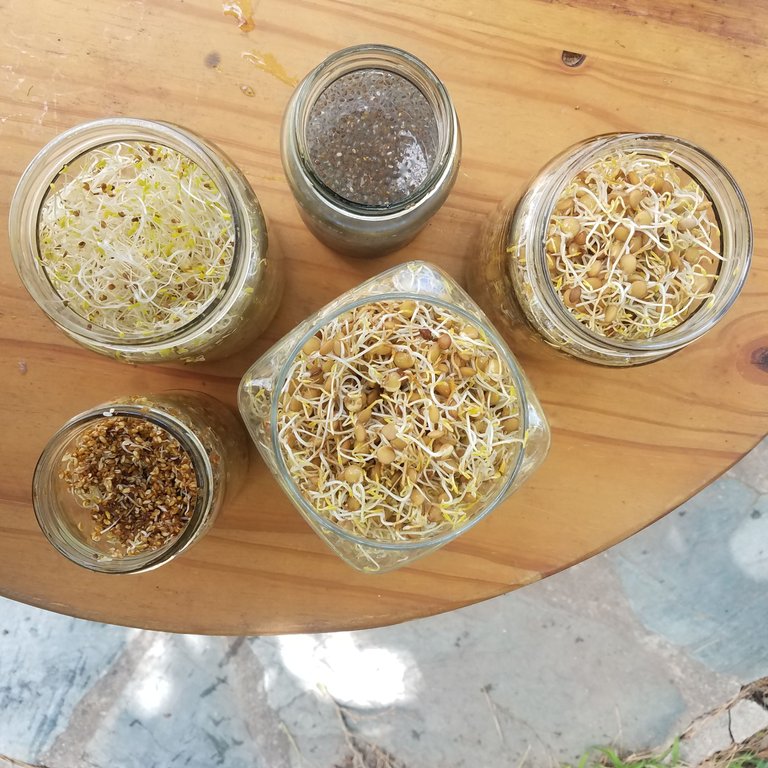
Some, like the lentils on the bottom right, I sprout for just a few days, or until I start to see a "tail" which is their roots starting to grow. Others, like the alfalfa, I tend to keep washing daily until I see little leaves growing which takes about a week. These seeds have been transformed into little plants and are less like carbohydrates and more like mini vegetables.
Some people even call them super foods because the nutrients that these little sprouts contain is dense. For me, soaking grains and sprouting seeds is one of my homesteading chores that doesn't require as much time, space, and money as other aspects of growing my own food.
Thank you so much for reading -- all images are, as always, my own.
Chai, I have been hearing of people who soak beans before cooking, hearing this from a westerners surprised me and afirm the claim.
When I want to cook beans, I boiled it on low heat for like 5-10minutes, put off the gas and let it rest for like 30 minutes before resuming back to cooking.
With that, the beans get done faster and flatulence is removed.
Interesting technique! I think you would find that soaking the beans, throwing out that water, then boiling in new water will make them even more digestible.
Thanks for your input!
You have no idea the insight this post has given me,hopefully I start adapting to this method of soaking beans before cooking.
Once again,thank you for your wonderful education.
Aw!! I am really happy to hear that this information helped you!! An easy way to encorporating soaking beans is by soaking them the night before, then renewing the water to cook with. Another benefit is the beans will cook much faster and use less energy. Best of luck to you && thank you for the comment!
You’re welcome 🥰
We are meant to live our lives and allow room for daily learning. I have learnt something new and useful.
Thank you for sharing.
Yay! I love that. So glad you learned something & I hope that the learning only continues ☀️
Hi beautiful soul! Yes yes yes i love what i see here! Im following you now! Great blog!
Thank you so much -- I am following you too!